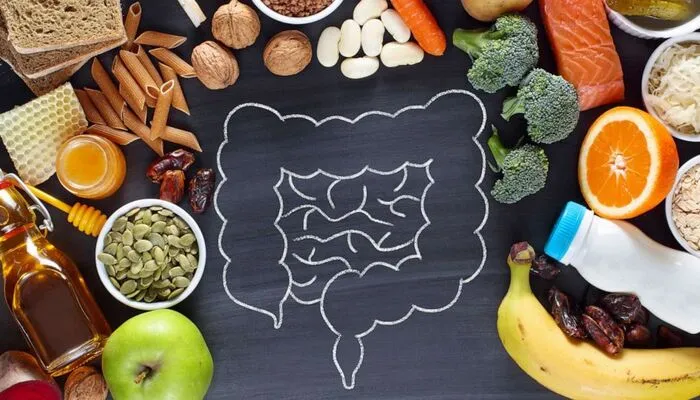Your gut plays a vital role in your overall health. It doesn’t just digest food but also eliminates toxins and supports your immune system. A healthy gut boosts mood, energy, and overall well-being. Poor gut health, on the other hand, can lead to problems like a weakened immune system, poor mental health, and even chronic diseases. Fortunately, improving gut health is simple if you focus on the right practices. Here’s how you can support your gut and feel better every day.
Why Gut Health Matters
Your gut is home to trillions of bacteria. These bacteria affect digestion, immunity, and even mental health. Nutrition expert Penny Weston explains, “Seventy percent of the body’s immune cells are found along the digestive tract.” Some bacteria can cause illness, but others are essential for keeping you healthy.
When your gut bacteria are balanced, your body functions smoothly. However, an unhealthy gut can make it hard for your body to absorb nutrients or eliminate toxins, leading to bloating, fatigue, and even severe health issues like heart disease or cancer.
Ways to Improve Gut Health
1. Add Fermented Foods
Fermented foods are rich in live bacteria, which can help balance your gut microbiome. These foods are made through a process where yeast and bacteria break down sugars, creating beneficial acids, gases, or alcohol.
Great fermented options include:
- Yogurt
- Kimchi
- Kefir
- Kombucha
- Sourdough bread
- Sauerkraut
- Cheese
Each fermented food has unique bacteria, so eating a variety is important. Always check labels, as some store-bought options may include unnecessary sugar or additives.
2. Increase Prebiotics
Prebiotics are plant fibers that feed your good gut bacteria. They’re found in fruits, vegetables, and whole grains that are high in complex carbohydrates. Research shows people who eat over 30 plant-based foods a week have more diverse gut bacteria compared to those eating fewer than ten.
Common prebiotic-rich foods include:
- Garlic
- Onions
- Leeks
- Asparagus
- Bananas
- Jerusalem artichokes
Including legumes like lentils, nuts, seeds, and herbs in your meals can also enhance your gut health.
3. Don’t Forget Probiotics
Probiotics are live bacteria that replenish your gut after illness or antibiotics. Unlike prebiotics, probiotics introduce good bacteria directly into your system. Foods rich in probiotics include:
- Aged cheese
- Miso soup
- Pickles
- Sour cream
- Yoghurt
Combining prebiotics and probiotics can be highly beneficial for restoring gut balance.
4. Consider Supplements
While most gut bacteria come from food, supplements can provide additional support. Prebiotic and probiotic supplements can improve digestion, ease symptoms of IBS, and reduce bloating. Studies also show they may enhance mental health by reducing anxiety linked to gut issues.
If taking both supplements, it’s best to consume probiotics in the morning and prebiotics later to avoid bloating.
5. Limit Alcohol
Alcohol can irritate the gut, making digestion difficult. Excessive drinking interferes with the production of enzymes that help break down food. This can lead to bloating, loose stools, and nutrient deficiencies.
Reducing alcohol intake can help your gut recover. Drinking water with meals can also aid digestion by softening stools and flushing toxins.
6. Snack on Dark Chocolate
Surprisingly, dark chocolate is good for gut health. It contains fiber that feeds probiotics in the gut, helping them grow. Research also shows the flavanols in dark chocolate reduce gut inflammation and lower the risk of colon cancer.
Choose chocolate with at least 70% cocoa for maximum benefits. Stick to 30g a day (three to four small squares) to avoid overindulgence.
7. Avoid Artificial Sweeteners
Artificial sweeteners may seem like a healthier alternative to sugar, but they can harm your gut. The digestive system doesn’t process sweeteners like sugar, and undigested sweeteners can disrupt gut bacteria.
Common products with artificial sweeteners include:
- Diet sodas
- Energy drinks
- Sugar-free condiments
- Granola bars
- Greek yogurt
Limit artificial sweeteners in your diet and opt for natural alternatives when possible.
Signs of Poor Gut Health
Your gut communicates when it’s not functioning properly. Watch for these signs:
- Digestive Issues: Hard stools, bloating, or cramping can signal imbalances in your gut. If symptoms persist, consult a doctor.
- Low Energy: A disrupted gut-brain axis can cause fatigue and poor concentration.
- Headaches: Gut inflammation can trigger migraines or tension headaches.
- Bad Breath: Poor digestion or irregular bowel movements can lead to toxin buildup, causing halitosis.
Worst Foods for Gut Health
Some foods can harm your gut by disrupting the balance of bacteria or causing inflammation:
- High Protein, Low Fiber Diets: Without enough fiber, excess protein ferments in the gut, creating harmful byproducts.
- Saturated Fats: Found in processed snacks and animal products, these can promote gut inflammation.
- Alcohol: Excessive intake irritates the gut and impairs nutrient absorption.
- Low Fiber Diets: Fiber helps strengthen gut muscles and supports healthy digestion.
Balancing these foods with gut-friendly options can help maintain gut health.
The Gut-Brain Connection
The gut and brain are closely linked, meaning gut health impacts mental health. A healthy gut boosts mood and lowers stress. Conversely, poor gut health can lead to anxiety and depression. This connection, known as the gut-brain axis, is why taking care of your gut is essential for overall well-being.
Final Thoughts
Improving gut health doesn’t have to be complicated. Focus on eating a variety of fermented and prebiotic foods while limiting processed and sugary options. Small changes, like drinking more water or snacking on dark chocolate, can have a big impact.
By prioritizing your gut, you’ll not only improve digestion but also boost energy, immunity, and overall health.
Follow Day News on Google News, Instagram, YouTube, Facebook, Whats App, and TikTok for latest updates
